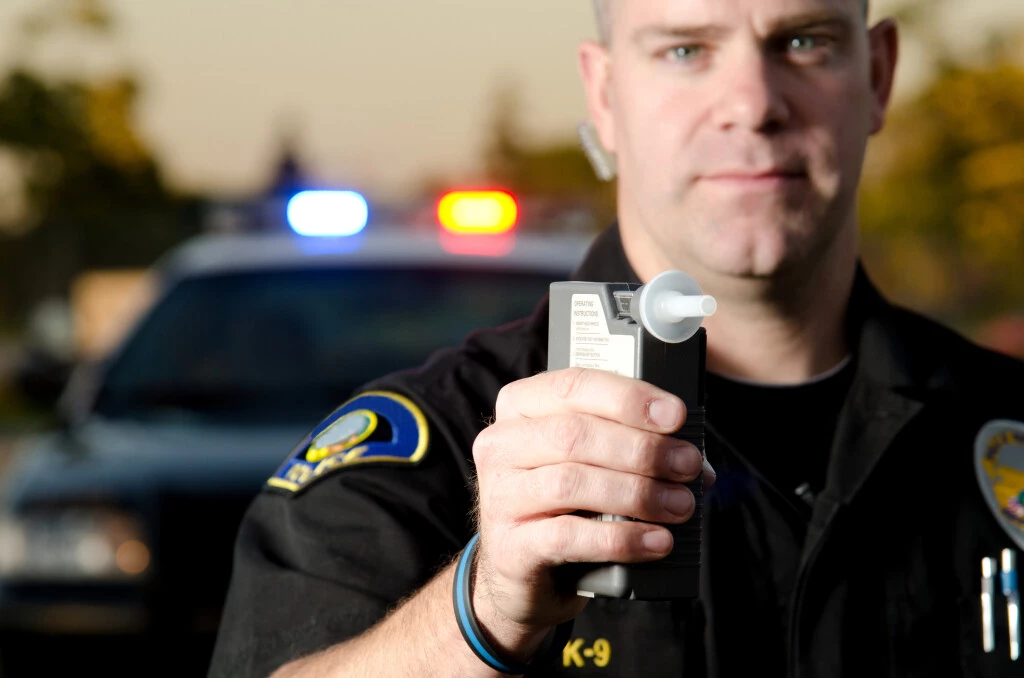Have you ever been stopped by a law enforcement officer on suspicion of driving under the influence (DUI) in California? If so, you may have had to consent to a field sobriety test.
Field sobriety tests are used by police officers when determining whether or not someone is intoxicated while operating a vehicle. Under California Vehicle Code Section 23152(f) It is unlawful for a person who is under the influence to operate a vehicle.
Understanding your rights and obligations when it comes to consenting to field sobriety tests can be challenging. This article will explain how this process works in California and what drivers should know before submitting to these types of tests.
As always, we would advise you to not drink and drive.
Can You Refuse a Field Sobriety Test?

The first thing any driver needs to understand about field sobriety tests in California is that they are voluntary. If an officer asks you to take a sobriety test, no matter the situation, you can refuse unless there has already been an arrest made for DUI charges.
A refusal cannot be held against you in court; however, if you do decide to submit, anything found during the test could potentially be considered as evidence against you later down the line.
By understanding all their options, individuals can make an informed decision about whether they should consent or decline when faced with this situation. With that in mind, let’s consider what happens next—the potential consequences for refusing a field sobriety test in California.
Consequences for Refusing a Field Sobriety Test
When it comes to refusing a field sobriety test in California, there are some potential consequences that should be considered. While the legal implications of declining such requests may vary depending on the situation and one’s individual circumstances, here is an overview of what could happen if you decline:
- The police officer has the right to arrest you under California Vehicle Code 23612 if they suspect DUI. This means they can take you into custody and arrange for a blood or breathalyzer test regardless of the results of a Field Sobriety Test. If convicted, your license will likely be suspended for up to 12 months with no restricted license possible during this time.
- Your insurance rates could increase significantly following a DUI conviction—particularly if it’s not your first offense.
- Refusing a field sobriety test might also damage any defense strategy related to defending against DUI charges later on in court proceedings. In some cases, refusal of field sobriety tests can be spun by the prosecution team as admission of guilt.
It’s important to remember that each case is different and every driver has their own unique set of circumstances when faced with this decision. Before making any decisions regarding consenting to or refusing a field sobriety test, individuals should consult with a qualified attorney who can provide advice based on the facts of their specific situation. With all this information in mind, let’s look at types of field sobriety tests available in California and what they involve.
Types of Field Sobriety Tests
| Test | What It Involves | What Officers Look For | Notes / Common Pitfalls |
|---|---|---|---|
| Horizontal Gaze Nystagmus (HGN) | Follow a pen/light with your eyes without moving your head. | Involuntary eye jerking, difficulty tracking smoothly, early onset of nystagmus. | Lighting, flashing patrol lights, contact lenses, eye/neurological conditions can affect results. |
| Walk-and-Turn (WAT) | Take 9 heel-to-toe steps on a line, pivot, 9 steps back. | Can’t balance during instructions, misses heel-to-toe, steps off line, uses arms for balance, wrong turn, wrong step count. | Uneven pavement, footwear (heels/boots), fatigue, anxiety, injuries may skew performance. |
| One-Leg Stand (OLS) | Stand on one foot ~30 seconds while counting aloud. | Sways, hops, uses arms for balance, puts foot down before time. | Gravel/wet ground, medical issues (inner ear, knee/ankle), age/weight, nervousness can impact results. |
| Non-Standardized (not NHTSA-standard) | Romberg balance, finger-to-nose, alphabet/number tasks. | General coordination, divided attention, following instructions. | Not standardized; greater variability and more susceptible to environmental/medical factors. |
When it comes to field sobriety tests, the most common type administered by law enforcement in California is known as Standardized Field Sobriety Tests (SFST). The tests are recognized by the National Highway Traffic Safety Administration (NHTSA) as reliable indicators of impairment by alcohol or drugs.
The officer may also ask you to perform a Romberg Balance Test or a Finger-to-Nose Test, but these tests are not standardized by the NHTSA.
Each of these tests requires the driver to demonstrate a certain level of physical coordination while following specific instructions from an officer.
It’s important to note that under California law, submitting to any one of these tests does not mean you must be found guilty of DUI or face legal repercussions. Ultimately, drivers need to weigh their options carefully before deciding whether they should take part in such an evaluation.
Speak to a Certified Legal Professional at West Coast Trial Lawyers
It is important to know that if you are asked to take a field sobriety test in California, your decision whether or not to consent can have serious consequences. By understanding the nature of these tests and how they work, you can make an informed decision about what action to take.
It’s also important to realize that although field sobriety tests may be used as evidence of intoxication in court proceedings, their accuracy is often questioned. Factors such as environment, physical limitations, and other medical conditions can inaccurately skew the results of these tests.
If you believe that the results of a field sobriety test do not accurately reflect your level of sobriety, then there are options available for challenging those results. Speak to a certified legal professional at West Coast Trial Lawyers.
Call us now at (213) 927-3700 for a free consultation and get the expert legal advice you deserve!














































































